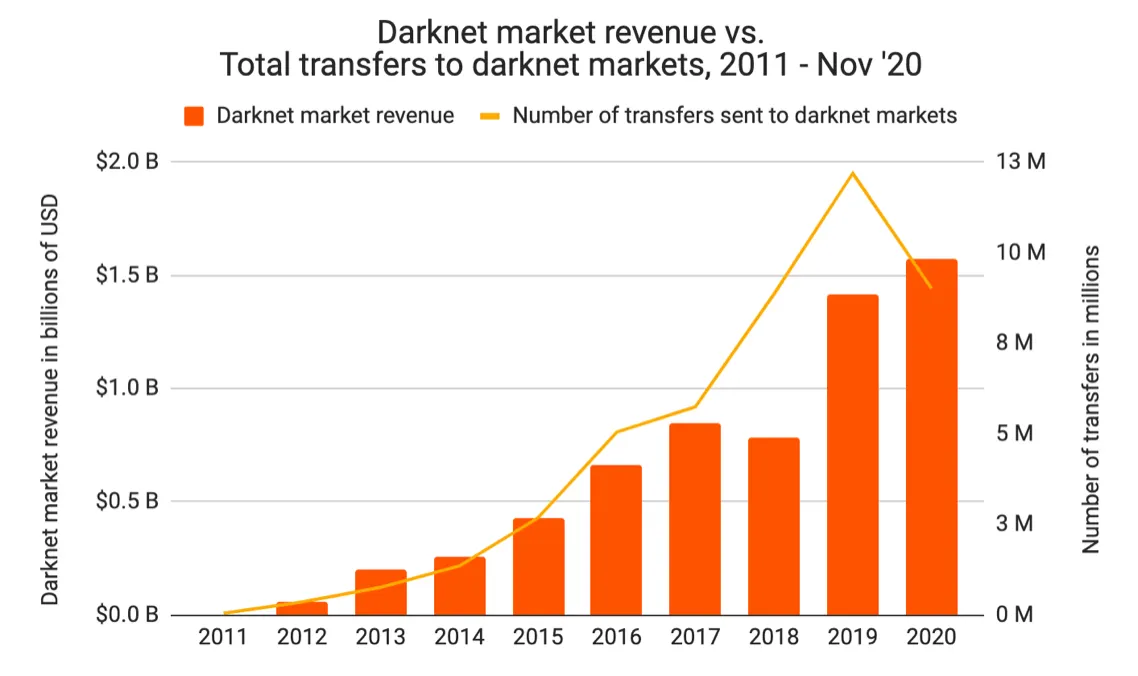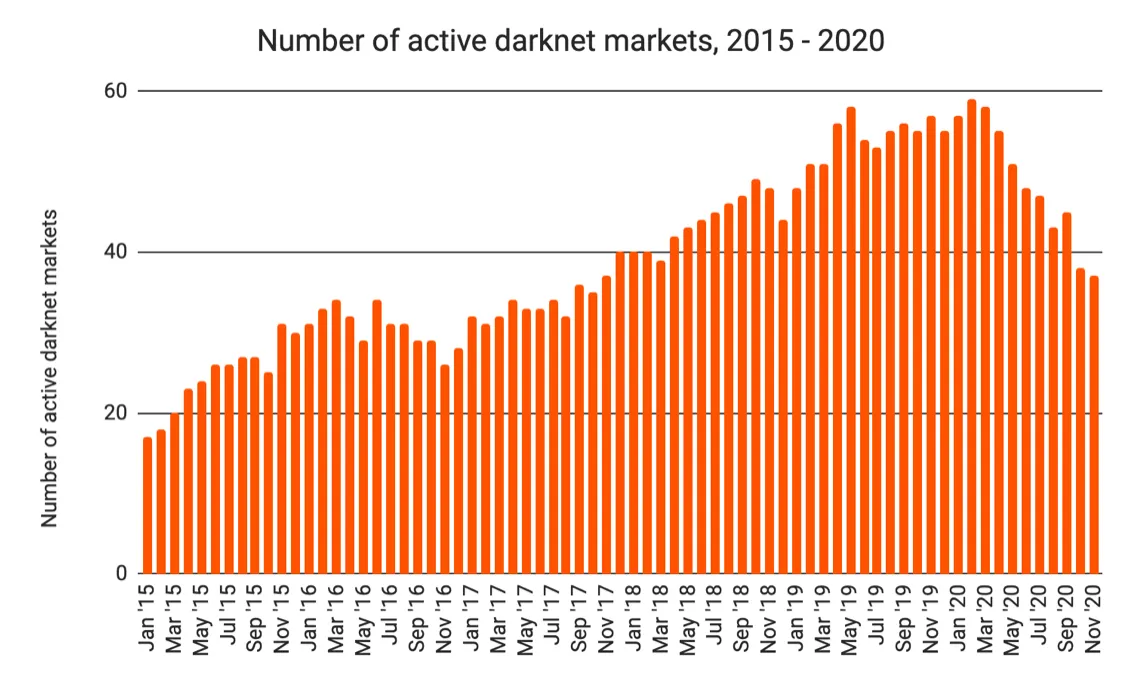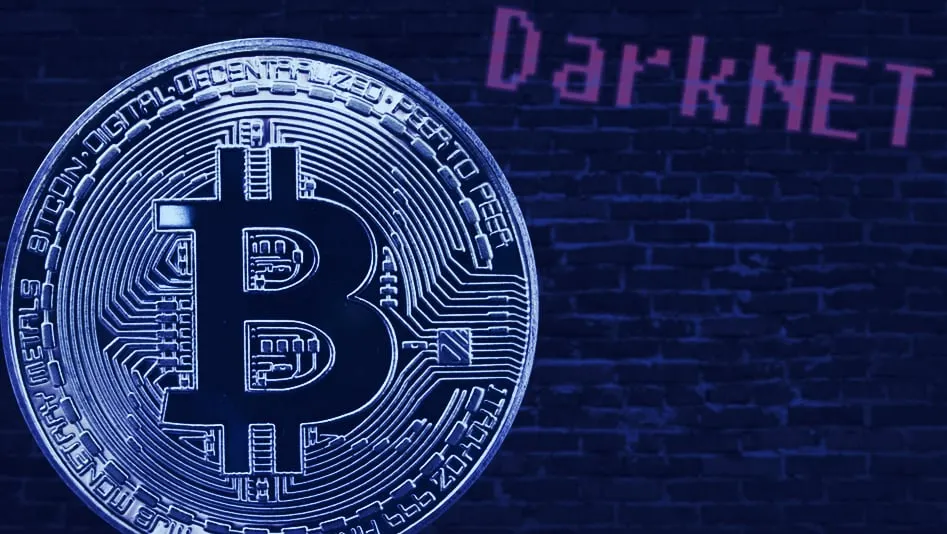In brief
- According to a Chainalysis report, darknet markets are decreasing in number but increasing in revenue.
- Chainalysis suggests COVID-19 was not the biggest factor in this trend.
- However, the pandemic has put pressure on darknet market vendors due to strained supply chains and shipping routes.
Darknet markets have surpassed their 2019 revenue this year with a month to spare, according to a report published by Chainalysis yesterday.
Darknet markets have always commanded great interest in the crypto community, first sparked by the infamous Silk Road, which plagued Bitcoin’s reputation during its formative years. Silk Road might seem like a distant memory by now, but darknet markets have persisted. And while the number of markets appears to be on the decline, those that remain are making more money than ever before.
“While total darknet market revenue has already surpassed 2019 totals, the overall number of purchases, and likely customers as well, has fallen significantly, though the remaining purchases are for higher values,” Chainalsys said.
Darknet market vendors have suffered—as legitimate vendors have—through a strained postage and shipping network on account of COVID-19. However, according to Chainalysis, the driving force of this revenue is a combination of increased competition and efforts by law enforcement to crack down on the markets themselves.
Consequently, the darknet market industry has consolidated to a smaller number of bigger players.
This trend is backed up by the data, which shows a sharp decline in the number of transfers sent to darknet markets, but an increase in total revenue. In the below graph, the currencies included are Bitcoin, Bitcoin Cash, Litecoin, and Tether.

These numbers show that darknet customers are making fewer purchases in total, but these purchases are, on average, for larger amounts. According to Chainalysis, this indicates two possible situations.
One, casual drug buyers are shifting away from the darknet to make their purchases, while larger buyers are simply buying more per purchase. Two, casual buyers are making larger purchases in response to uncertainty.
But according to Ingo Fiedler, co-founder of Blockchain Research Lab, this trend is primarily the result of increasing law enforcement focus on the darknet market industry.
“Only the most sophisticated can obfuscate their traces by now. That prevents small dealers from participating in the market and a natural tendency towards fewer but larger dealers on those markets,” Fiedler told Decrypt.
This theory is supported by the fact the number of active darknet markets themselves are also on the decline.
According to Chainalysis, the total number of active markets in November 2020 (37) is the lowest total seen since November 2017.

However, the success of law enforcement is just one possible explanation for this decline. “Administrators often pull exit scams, in which the market ceases operations but publicly appears to still be active so that administrators can continue collecting money from purchases that will never be fulfilled,” Chainalysis said.
Unavoidably, COVID-19 has also had an impact on this trend.
COVID-19 and the darknet market industry
While Chainalysis said COVID-19 wasn’t the biggest factor in this year’s darknet market trends, it has had some impact.
Specifically, interruptions to supply chains and shipping routes have caused darknet market delays, prompting complaints from frustrated customers.
On a darknet market forum, one cocaine vendor based in Canada said, “With COVID-19 causing massive interruptions across the nation, I am still trying my best to keep prices reasonable but competitive,” adding, “Canada post is not guaranteeing two business day delivery for the time being.”
It can be tough running an illegal online business.

